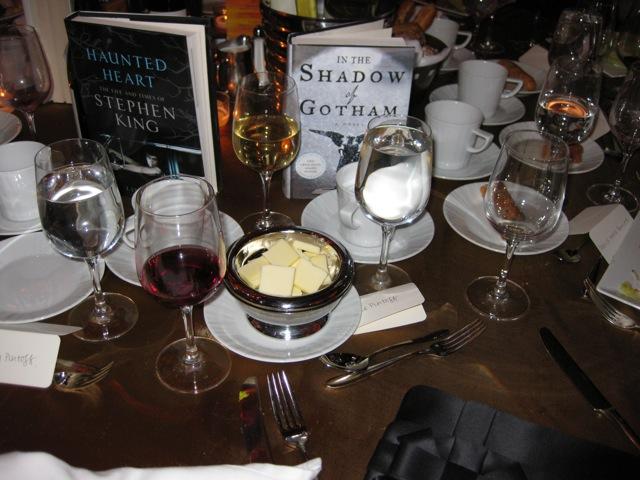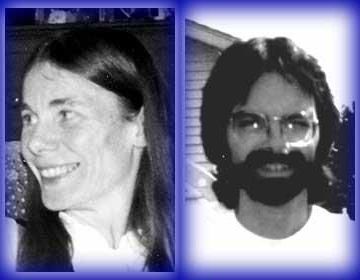I hope you all are as excited as I to read the next installment in emerging writer Karyne Corum’s series on learning how to be a cop, all without ever having to fire a gun.
Not a real one, that is. As Karyne describes below, she gets pretty darn close…
All I could think was, oh please, don’t let there be someone waiting to shoot us. But of course, I knew there had to be. We could still hear the moans of the wounded behind us as I led my team forward. Two sharp motions with my hands, and into each bathroom an officer went. I held my breath even as I kept my eyes trained on the waiting gloom ahead of us. Nothing moved within, but still I felt my nerves twitch anxiously.
“Clear!” “Clear!”
The relieved shouts of my team alerted me to the fact that for right now at least, there was no threat.
Like gaping mouths, two doorways lay to the right and left sides of the center frame ahead of us. We split up, two and two, and then slowly, our eyes shifting from left to right cautiously, my team entered the room.
I could just make out two forms motionless on either end of the room. One slumped in a chair, while the other was a heap of tangled limbs on
the floor. From behind me, the secretary muttered, “We gotta shut that music off, it’s driving me crazy.”
I couldn’t have agreed more. We continued to edge into the room, watching those still forms, wondering if they would at any moment leap
up and fire at us. The darkness made it all the more possible. I heard the secretary slapping at the boombox that was pumping out the music, too afraid to turn her back to the dark room in order to find the off button. After several hard thumps, the music was cut off in mid-growl.
Just then, as if in response, light flooded the room. One of my team had found the light switch. Now the bodies came into focus. Bullet casings littered the floor by both, and gruesome wounds marked head, neck and abdomen. Nobody spoke for a second, then, “What do we do, Sargent?”
Before I could answer we heard several shots ring out on the floor above us. My first thought was to head there, find out who was in trouble and help them. But fear and preservation held me fast. I had others looking to me for orders.
There were several doors unopened that might conceal any number of dangers. But overhead there was something terrible going on.
Every shot you hear could be another person dead.
I struggled to make a good decision, the right decision. In the end, the safety of my team made me choose to keep them focused on clearing the
floor of any hidden danger. I hate to admit this, but I found myself thinking that whoever had been shot that many times upstairs was most likely dead. I didn’t want to sacrifice any one of my officers on that chance.
Wrong decision? Or officer’s discretion? I had already learned that most of what an officer decides to do in any given situation comes down
to two critical factors. Training and personal discretion. (Later on I would ask the Captain about my decision and he told me it was the wrong call. The first and most important task in that situation was to get to the shooter. The formation of my team would have helped to keep our backs safe while we went forward. The diamond formatter, one in front, another to the left, one to the right, and the last one in the rear facing backward is how this is normally carried out.)
By the time we had determined the bodies were dead, one from several shotgun shells to his stomach and neck, the other from a bullet wound to the head, everyone’s blood pressure and stress level had risen. The smell of blood was overpowering (in this case, Heinz’s ketchup; it was hard not to think of French fries).
We all knew we had to head up those stairs, and we all dreaded what was waiting for us.
The victim of the shotgun blast lay near the stairway, a wide pool of blood puddled near his belly. Bloody footprints led away from the body towards the door. I called my team to me, but there were just three of us, no fourth to handle our backs. We cautiously opened the door. The footprints now led to the outside. Surviving victims had yelled to us upon entry that there were three shooters, and one of them had headed outside. I posted the secretary, who was just about itching to shoot someone, I could tell, at the door, while the pharmacist and I raced to the front of the building.
Inching our way around the righthand side of the building, where a medium sized parking lot was, I could see several cars. Each one translated into a potential hiding spot. Using my flashlight as a probe I slowly worked my way around the back ends of the cars, while the pharmacist maneuvered along the side of the building.
We had just reached the back of the building, where the open door lay, when a tall white haired man came scurrying out accompanied by the the secretary, who announced with great satisfaction, “I shot you, you’re dead, dumba**“
One of the training officers agreed that she had indeed shot him before he could run. Schoolyard rules still apply here. Whoever shouts “Bang!” first wins.
The pharmacist and I looked at each other and grinned in relief. First blood, it would seem, had been drawn, and it was for our side.
Karyne Corum is the married mother of one preschooler. She lives in Central New Jersey, and has been telling stories since she was a little girl–only now they get her into a lot more trouble. Fortunately, she can write her way out of most of it. Her many jobs prior to accepting the inevitable include actor, security guard, executive assistant and massage therapist. She is currently at work on her first full length novel, which keeps her up at night almost as much as her four-year old son does.












